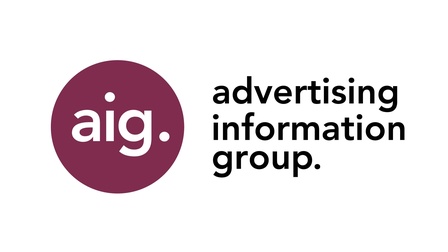
AIG Newsletter 9 September 2024
Advertising Information Group-Newsletter
Lesedauer: 4 Minuten
- NEWS
- MEMBER STATES ANNOUNCE THEIR COMMISSIONERS' NOMINATIONS
- EC PUBLISHES FOLLOW-UP ON GREEN CLAIMS DIRECTIVE
- EC OPPOSES AMENDING GDPR, FOCUSES ON ENFORCEMENT INSTEAD
- EU AND CHINA LAUNCH CROSS-BORDER DATA FLOWS MECHANISM
- EP CULT EXCHANGES VIEWS WITH DG CONNECT
- CULT HEARS PRESENTATION ON EU CULTURE AND CREATIVE SECTORS
- THE AI ACT ENTERS INTO FORCE
- EC SIGNS AI TREATY WITH THE US AND UK
- DATES FOR YOUR DIARY
- MEMBER STATES ANNOUNCE THEIR COMMISSIONERS' NOMINATIONS
- EC PUBLISHES FOLLOW-UP ON GREEN CLAIMS DIRECTIVE
- EC OPPOSES AMENDING GDPR, FOCUSES ON ENFORCEMENT INSTEAD
- EU AND CHINA LAUNCH CROSS-BORDER DATA FLOWS MECHANISM
- EP CULT EXCHANGES VIEWS WITH DG CONNECT
- CULT HEARS PRESENTATION ON EU CULTURE AND CREATIVE SECTORS
- THE AI ACT ENTERS INTO FORCE
- EC SIGNS AI TREATY WITH THE US AND UK
News
In this week's edition: The candidates for the 2024-2029 College of Commissioners see President von der Leyen's call for gender balance largely unheeded. The EC expresses concerns over amendments to the Green Claims Directive, and decides to focus on enforcing the GDPR. A new cross-border data flow mechanism with China is launched. The CULT Committee engages in discussions on media policy and creative sectors with key figures. The AI Act enters in force, introducing a risk-based approach to AI regulation and the EC signs the AI Convention, marking a significant step in international AI governance.
MEMBER STATES ANNOUNCE THEIR COMMISSIONERS' NOMINATIONS
The 27 Member States nominatedtheir candidates for the 2024-2029 College of European Commissioners. Despite von der Leyen's callfor gender-balanced nominations there were just 9 female nominees versus 17 male. Von der Leyen is now tasked with assigning portfolios, with a tentative college expected to be presented to the EP on 11 September. The new Commission could potentially take office in November, though delays are anticipated due to the rigorous vetting process.
EC PUBLISHES FOLLOW-UP ON GREEN CLAIMS DIRECTIVE
The EC has respondedto the EP's legislative resolutionon the Green Claims Directive proposal expressing concerns about certain amendments such as changes to climate-related claims that could harm voluntary carbon markets, and alterations that might weaken efforts to curb the proliferation of labels in the EU single market. The Commission also voiced apprehension regarding amendments that increase its obligations and cautioned against divergent implementation deadlines, which could impede efficient implementation, consumer protection, and enforceability of the directive.
EC OPPOSES AMENDING GDPR, FOCUSES ON ENFORCEMENT INSTEAD
The EC has decidednot to reopen the GDPR until at least 2028, instead it will focus on improving enforcement, especially as the latest report on the application of the GDPR pointed to enforcement issues. Whilst some MEPs argued that urgent action was needed to adapt to AI developments, others welcomed the focus on enforcement, fearing that reopening the GDPR could undermine privacy standards. Meanwhile, legal challenges are ongoing regarding the lawfulness of using personal data for AI training. Some argue that existing regulations, such as the Data Act and Data Governance Act, already provide mechanisms for using personal data whilst ensuring privacy.
EU AND CHINA LAUNCH CROSS-BORDER DATA FLOWS MECHANISM
The EU and China have initiateddiscussions under the new Cross-Border Data Flow Communication Mechanism, with the first formal meeting taking place on 27 August. The EU emphasised its aim to address concerns of European businesses in China regarding non-personal data flows across borders, which are vital for EU-China foreign direct investment. The two parties plan to continue engagement at expert and technical levels to address these issues.
EP CULT EXCHANGES VIEWS WITH DG CONNECT
On 4 September, the CULT Committee engaged in a discussion with Roberto Viola, Director-General of DG CONNECT. The exchange emphasised media's crucial role in the EU, focusing on the significance of the EMFA and the AVMSD in addressing sectoral challenges. Members raised concerns about the interplay between AI and media, and explored opportunities and challenges in the digital realm, particularly regarding social media.
CULT HEARS PRESENTATION ON EU CULTURE AND CREATIVE SECTORS
The CULT Committee received a presentation on a studyconcerning EU Culture and Creative Sectors (CCS) policy. The study examined policy developments from 2019-2024, identified barriers hindering the sector's development and emphasised the importance of leveraging existing EU funding instruments and programmes to support the sector's growth and address challenges.
THE AI ACT ENTERS INTO FORCE
On 1 August, the world's first comprehensive AI regulation, enteredinto force, introducing a risk-based approach to ensure trustworthy AI in the EU. Member States have until 2 August 2025 to designate competent authorities for implementation oversight, with a new AI Office serving as the key EU-level implementation body. Most rules will apply from 2 August 2026, except for unacceptable risk category rules, which take effect after six months.
EC SIGNS AI TREATY WITH THE US AND UK
On 5 September, the EC signed the Council of Europe Framework Convention on AI on behalf of the EU, marking the first legally binding international agreement on AI. Aligning closely with the EU AI Act, the agreement aims to ensure AI systems are compatible with human rights, democracy, and the rule of law while fostering innovation and trust. Implementation within the EU will occur through the AI Act and other relevant legislation.
DATES FOR YOUR DIARY
10 September: Synthetic Data for AI Conference (DG Connect)
11 September: College of Commissioners are being presented with their respective portfolios
11 September: Data for Innovation Conference (DG Connect)
11 September: ATS London 2024 (Exchange Wire)
16 September: Info day: Towards networked Local Digital Twins in the EU (DG Connect.A5)
16 September: Creative Skills Week (Saccord)
18 September: AI Act Webinar (EISMEA)
18 September: Sustainable data centres in the AI era: Dream or reality (Digital Europe)
25 September: Tech and the new mandate - opportunities and challenges (Euractiv)
Stand: 09.09.2024